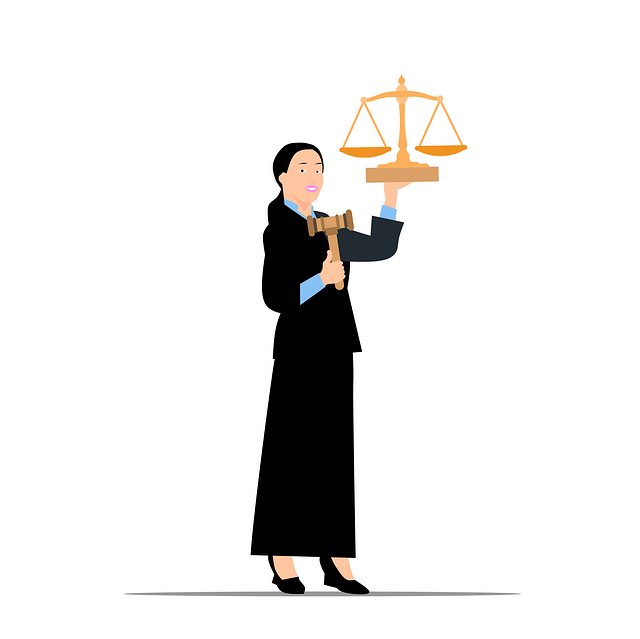Criminal law, a core component of legal studies, establishes rules to protect society and hold wrongdoers accountable. It covers a wide range of offenses from minor misdemeanors like petty theft to severe felonies such as drug trafficking and robbery. This field includes protections for individuals in proceedings, such as the right to legal counsel, understanding accusations, and protection from self-incrimination. Understanding offense types and penalties is vital; misdemeanors often result in fines or short prison terms, while felonies can lead to lengthy sentences. Legal professionals play a crucial role, advocating for defendants' rights, interpreting laws, challenging evidence, and ensuring fair trials throughout the criminal justice system.
Delve into the intricate world of criminal law, where justice meets punishment. This comprehensive guide explores foundational concepts, defining what constitutes a crime and outlining the scope of criminal legal systems globally. We dissect key principles safeguarding individual rights during criminal proceedings, common offence types and their varying penalties, and the crucial roles played by lawyers in these cases. Discover how legal professionals navigate this complex landscape, ensuring fairness and adherence to the law. Uncover the essential elements shaping our understanding of criminal justice.
- Understanding Criminal Law: Definitions and Scope
- Key Principles and Rights of Individuals in Criminal Proceedings
- Common Types of Criminal Offences and Their Penalties
- The Role of Legal Professionals in Criminal Law Cases
Understanding Criminal Law: Definitions and Scope

Criminal law is a complex and essential branch of legal study, encompassing rules and regulations designed to protect society and punish wrongdoers. It serves as a cornerstone in maintaining public order and safety by defining and penalizing criminal acts. At its core, criminal law focuses on crimes that are deemed harmful to individuals or the community, ranging from minor offenses to severe violent crimes.
The scope of criminal law is vast, covering various types of offenses and their corresponding penalties. It includes provisions for crimes against persons, such as assault and murder, as well as crimes against property, including theft and fraud. Additionally, it addresses public order offenses, like loitering and rioting, and involves regulations pertaining to specific areas like drug trafficking, white-collar crime, and cybercrime. Understanding these definitions and the law’s reach is crucial for both legal professionals and individuals seeking to navigate the complexities of the criminal justice system.
Key Principles and Rights of Individuals in Criminal Proceedings

In any criminal proceeding, individuals are safeguarded by a set of fundamental principles and rights enshrined in criminal law. These ensure fairness, protect innocence until proven guilty, and guarantee due process. The right to legal counsel is paramount, allowing accused persons to mount a robust defense. They are also entitled to know the nature and cause of the accusation against them, ensuring they can understand and respond appropriately.
Another crucial right is the protection from self-incrimination, known as the Fifth Amendment privilege in many jurisdictions. This prevents any individual from being compelled to provide evidence that could incriminate them. Additionally, suspects have the right to remain silent, avoiding potential misuse of their words. These rights are fundamental to the criminal justice system, ensuring that every individual stands equal before the law.
Common Types of Criminal Offences and Their Penalties

In the realm of criminal law, understanding common types of offences and their associated penalties is paramount for both legal professionals and the general public. These crimes range from minor infractions to grave felonies, each carrying distinct consequences. Among the most prevalent are misdemeanours, which typically involve less serious acts like petty theft or simple assault. Penalties for misdemeanours often include fines, community service, or brief periods of imprisonment up to a year.
Moving upwards in severity are felonious offences, such as robbery, aggravated assault, or drug trafficking. These crimes are punishable by more stringent measures, including lengthy prison sentences, substantial fines, and potential lifetime supervision post-release. The specific penalties vary based on jurisdiction and the gravity of the offence, reflecting the principles of criminal law in mitigating harm and promoting justice.
The Role of Legal Professionals in Criminal Law Cases

In criminal law cases, legal professionals play a pivotal role, acting as guardians of justice and advocates for defendants’ rights. These experts navigate the complex web of laws and regulations to ensure fair trials and protect the interests of those accused. They are instrumental in interpreting statutes, crafting legal strategies, and presenting compelling arguments before courts, ultimately shaping the outcome of criminal proceedings.
From attorneys to public defenders and prosecutors, these professionals guide clients through every stage—from initial investigations to sentencing. Their knowledge and skills enable them to challenge evidence, interrogate witnesses, and offer alternative perspectives, ensuring that justice is not only sought but also served within the confines of the law. They are the backbone of criminal law, upholding fairness and due process for all involved.
Criminal law, a cornerstone of legal systems worldwide, encompasses a complex web of rules and principles governing criminal offenses and their punishment. By understanding the definitions, rights, and procedures outlined in this article, individuals can better navigate the complexities of the justice system. Legal professionals play a pivotal role in ensuring fairness and upholding the rights of those accused, while also providing guidance on common offenses and their associated penalties. Staying informed about these matters is essential for both citizens and legal practitioners alike, as it fosters a more aware and just society.
